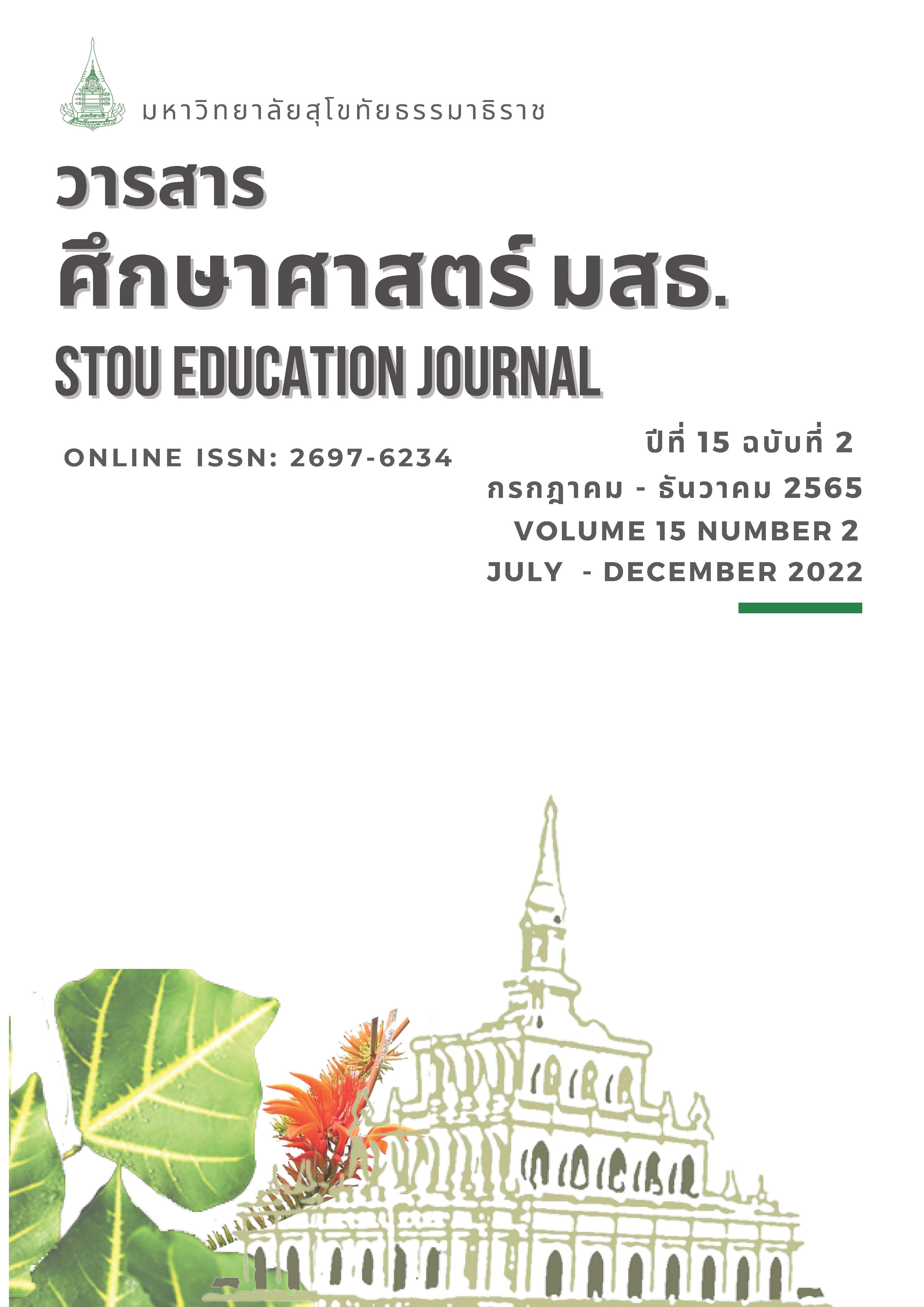Excellence Management Strategies for Secondary Schools Toward School as a Learning Community
Main Article Content
Abstract
The objectives of this research were 1) to study the priority needs and analyze the strengths, weaknesses, opportunities, and threats of excellence management of secondary schools toward being the school as a learning community; and 2) to propose excellence management strategies for secondary schools toward being the school as a learning community. The research sample consisted of 92 secondary schools under the Office of the Basic Education Commission in Bangkok Metropolis. The research instruments were a questionnaire, a scale to assess appropriateness, and a scale to assess feasibility. Statistics employed for data analysis were the frequency, percentage, mean, standard deviation, and PNImodified index. The research findings revealed that 1) the excellence management aspect of personnel-focused management had the highest priority needs index and was the weakness of the management, while the leadership aspect was the opportunity of the management, and the focus on learners and stakeholders was the threat to the management; and 2) excellence management strategies were the following: (1) transforming the capability development of teachers and educational personnel to enable them to have the vision and concepts of the school as a learning community; (2) transforming the development of organizational leaders to enable them to acquire the paradigm on philosophy and activities system of the school as a learning community; (3) transforming the creation of the relationship and engagement with learners and stakeholders to enhance their participation in education reform in school based on the philosophy of the school as a learning community; (4) developing the system of measurement, analysis, and management of knowledge in accordance with the philosophy and activities system of the school as a learning community; (5) developing the teachers’ mindset and performance consistent with the philosophy and activities system of the school as a learning community; and (6) topping up the strategic plans in line with the vision of the school as a learning community.
Article Details
References
มานาบุ ซาโต. (2559). การปฏิรูปโรงเรียน แนวความคิด “ชุมชนแห่งการเรียนรู้” กับการนำทฤษฎีมาปฏิบัติจริง. โรงพิมพ์ภาพพิมพ์.
ปรีชญา ธนาวัฒนเจริญ และ ชญาพิมพ์ อุสาโห. (2558) การบริหารโรงเรียนดนตรีตามแนวคิดการบริหารแบบมุ่งคุณภาพทั้งองค์การ. An Online Journal of Education, 11(4), 624–636. https://so01.tci-thaijo.org/index.php/OJED/article/view/161305
ศนิชา ภาวโน. (2562). รูปแบบการพัฒนาผู้บริหารโรงเรียนตามแนวคิดโรงเรียนเป็นชุมชนแห่งการเรียนรู้. [วิทยานิพนธ์ครุศาสตรดุษฎีบัณฑิต ไม่ได้ตีพิมพ์]. จุฬาลงกรณ์มหาวิทยาลัย.
สำนักงานคณะกรรมการการศึกษาขั้นพื้นฐาน. (2559). เกณฑ์รางวัลคุณภาพแห่งสำนักงานคณะกรรมการการศึกษาขั้นพื้นฐาน OBECQA ปี 2559 -2560. โรงพิมพ์ชุมนุมสหกรณ์การเกษตรแห่งประเทศไทย.
สำนักงานคณะกรรมการการศึกษาขั้นพื้นฐาน. (2561). ยุทธศาสตร์การศึกษาขั้นพื้นฐาน 20 ปี (พ.ศ. 2561-2580). https://www.obec.go.th/wp-content/uploads/2019/06/
สำนักงานมาตรฐานและประเมินผลอุดมศึกษา สำนักงานคณะกรรมการการอุดมศึกษา (2552). เกณฑ์คุณภาพการศึกษาเพื่อการดำเนินการที่เป็นเลิศ 2552-2553. โรงพิมพ์ภาพพิมพ์.
สำนักงานสภาพัฒนาเศรษฐกิจและสังคมแห่งชาติ. (2565). แผนปฏิรูปประเทศด้านเศรษฐกิจ. http://nscr.nesdc.go.th/wp-content/uploads/2022/03/5.%E0%B9%80%E0%B8%A8%E0%B8%A3%E0%B8%A9%E0%B8%90%E0%B8%81%E0%B8%B4%E0%B8%88-CR_For-Web1-119-230.pdf
เอกพล สุมานันทกุล และ ศิริชัย กาญจนวาสี. (2561). การพัฒนาแบบประเมินการจัดการศึกษาที่มุ่งสู่ความเป็นเลิศสำหรับโรงเรียนเอกชน. An Online Journal of Education, 13(1), 118- 134. https://so01.tci-thaijo.org/index.php/OJED/article/view/141664
Sallis, E. (2002). Total quality management in education (3rd ed.). London Kogan Page.


